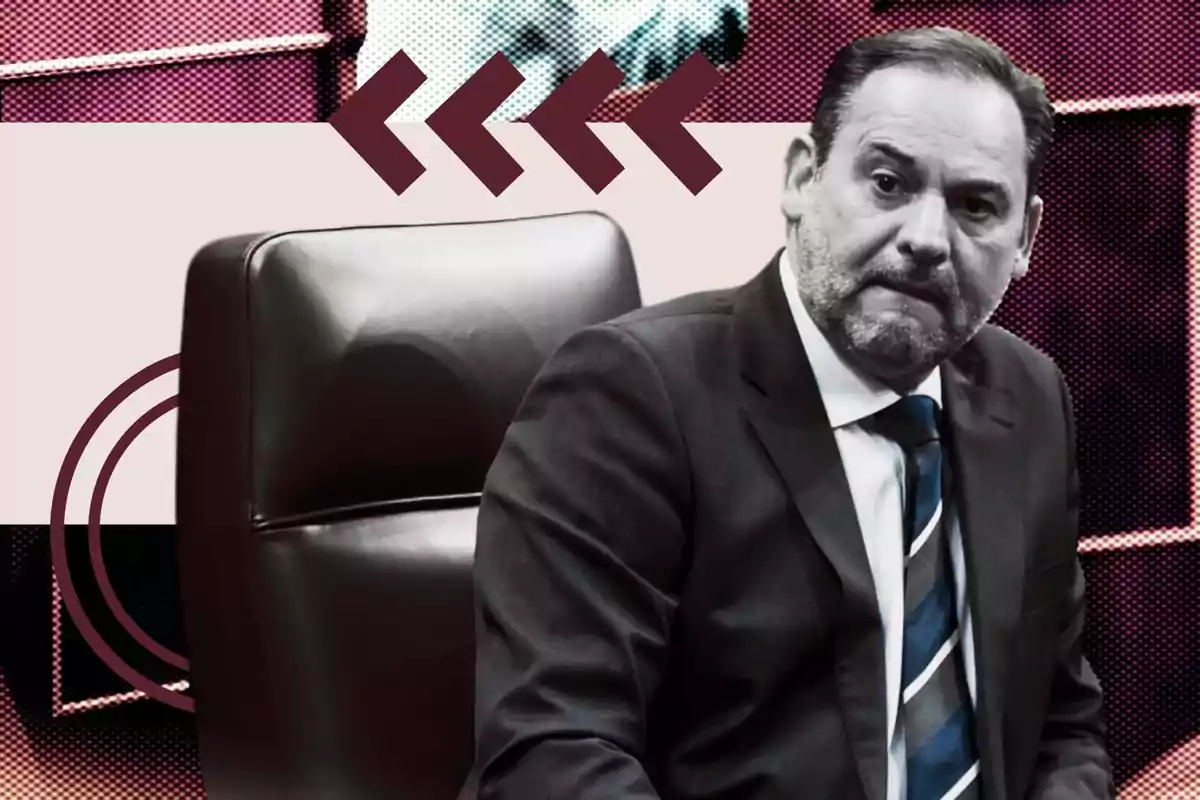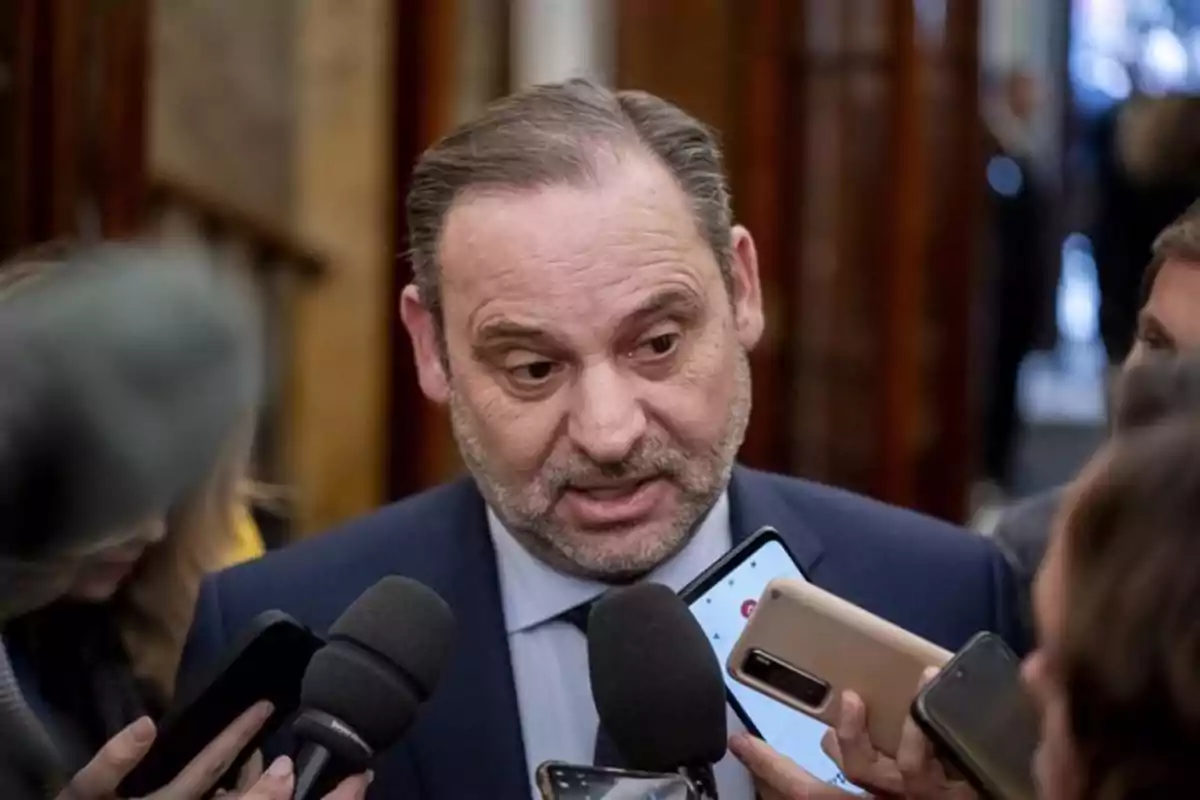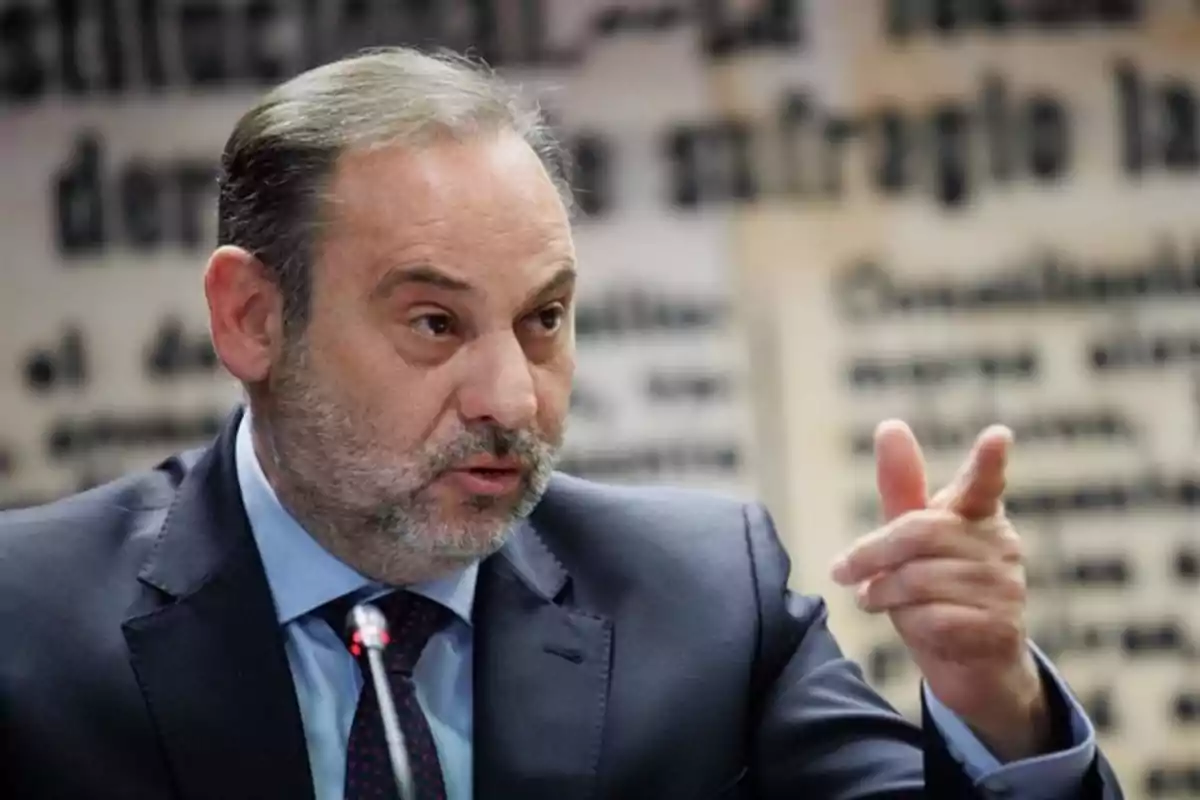
This is how Ábalos could avoid the Supreme Court investigation
The former socialist minister could face justice after the green light for the request against him
The Supreme Court could investigate José Luis Ábalos, former Minister of Transport, if Congress approves the request this Wednesday.
This measure seeks to clarify Ábalos's role in the so-called Koldo case. A scandal involving several PSOE members in a corruption scheme related to the sale of masks during the pandemic.
However, the former minister has one last chance to prevent the High Court from continuing the investigation. Retransfer as a deputy of the Mixed Group, which would allow the case to return to the National Court.
The request is the mechanism by which Congress grants permission to investigate a deputy, as they have parliamentary immunity.
Judge Leopoldo Puente requested this permission on December 18, based on evidence that Ábalos played a prominent role in the organization.
The intercepted conversations among those involved in the scheme describe Ábalos as "the boss" of the network.
Ábalos Seeks to Buy Time and Avoid the Supreme Court
Despite the request, Ábalos still has a legal strategy to delay the process. If he decides to resign his deputy seat, he would lose his privileged status, which would return the case to the National Court.
In this scenario, the former minister could gain a couple of judicial instances before facing a final sentence.
Criminal lawyer Pablo Martínez points out that if Ábalos gives up his deputy seat, the procedure would return to the original court, the National Court.
Despite this possible delay, the expert warns that this move could be frowned upon by judges, who might interpret it as a lack of seriousness in his defense.
The Supreme Court and the National Court: Two Different Paths
Criminal Law professor Rafael Fontán explains that if Ábalos resigns his seat, the case could be returned to the National Court. According to the Constitutional Court's jurisprudence in Judgment 22/1997.

However, some jurists believe the Supreme Court could continue with the case. Even if the former minister loses his privileged status, the Supreme Court's jurisdiction is established at the time of the opening of the oral trial.
The debate over judicial jurisdiction reflects a complex procedural issue. Some experts believe the Supreme Court should keep the case due to the seriousness of the charges. Others argue that, upon losing his privileged status, Ábalos should be tried by the National Court.
Ábalos's Maneuvers to Halt the Investigation
Ábalos has attempted to halt the investigation on several occasions. In early December, the former minister testified before the Supreme Court and denied the accusations made by businessman Víctor de Aldama.
In his statement, Ábalos also shifted responsibility to his advisor Koldo García. According to the former minister, he had been in charge of managing the purchase of masks.
However, the Supreme Court rejected Ábalos's requests to halt the case. Judge Puente emphasized that there were "sufficient indications" of his involvement in the Koldo scheme.
Additionally, Ábalos filed a complaint against the Civil Guard for intercepting his phone and "crossing private correspondence." Although the evidence collected by the agents strengthens the accusation against him.

The Role of Congress and the Possible PSOE Vote
The judicial process has also involved Congress. On January 16, the Deputy Statute Commission approved processing the request.
A crucial step for the Lower House Plenary to vote on the removal of Ábalos's immunity.
The final word will be with Congress, especially after the PSOE, his former party, announced it would vote in favor of the request.
To date, Congress has approved 33 requests, rejecting only 14, with the last negative in 1988. Therefore, Ábalos could see his immunity suspended, allowing the Supreme Court to continue the investigation against him.
Despite efforts to halt the investigation, Ábalos faces an uncertain future. If he decides to keep his deputy seat, the Supreme Court could investigate his links to the Koldo scheme.
Should he renounce his immunity, the case would return to the National Court, giving him more time but not changing the course of the investigation.
In this context, Ábalos continues to seek a legal way out to avoid facing corruption charges that threaten to damage his political career.
However, the judicial process continues to advance, and his fate seems increasingly uncertain.
More posts: